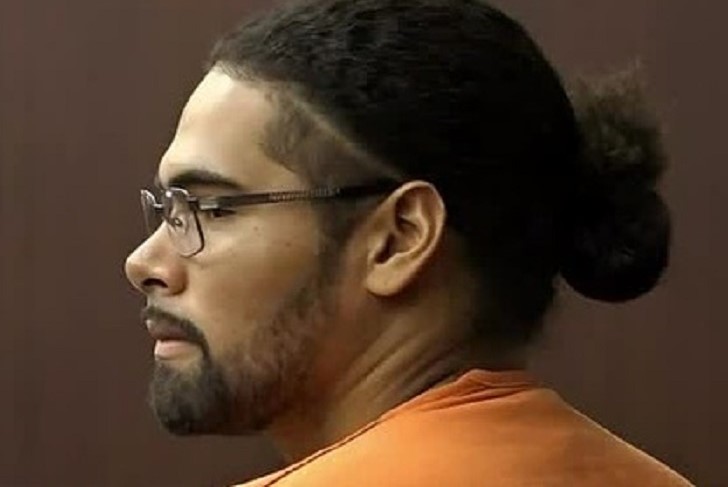The Johnathan Quiles trial has been one of the most heart-wrenching and contentious cases in recent years. The jury faces a monumental decision: should Quiles be sentenced to life in prison, or should he receive the death penalty for his heinous crimes?
The Tragic Case of Iyana Sawyer
Sixteen-year-old Iyana Sawyer was pregnant and reportedly carrying her uncle's baby when she was brutally murdered. According to prosecutors, Sawyer was unaware of her uncle's sinister intentions. She was killed, her body discarded in a trash bin, and eventually transported to a landfill, never to be found. This tragic event unfolded in December 2018 in Jacksonville, shaking the community to its core.

@murder__and_its_victims | Instagram | Sixteen-year-old Iyana Sawyer was pregnant and reportedly carrying her uncle's baby when she was brutally murdered.
Sawyer was last seen at Terry Parker High School on December 19, 2018. Her disappearance prompted massive searches, including extensive efforts at the Otis Road Landfill in Baldwin. Despite the lack of a physical body, prosecutors presented a compelling case against Johnathan Quiles, charging him with two counts of first-degree murder and sexual battery.
Conviction and Sentencing Phase
After a brief hour of deliberation, the jury convicted the 38-year-old Quiles of all charges. The next phase, set to commence on Monday, involves deciding Quiles' fate: life in prison or the death penalty. Under a recent 2023 bill, Florida law allows for a death sentence if a majority of eight out of twelve jurors recommend it, a significant shift from the previous requirement of unanimity.
Throughout the trial, Quiles showed a minimal reaction, maintaining a stoic demeanor. His behavior remained unchanged even as the jury delivered their guilty verdict. The sentencing phase will explore whether he deserves the ultimate punishment or a life behind bars.
Johnathan Quiles Trial Evidence and Testimonies
The prosecution built a strong case against Quiles, utilizing various testimonies and evidence. Witnesses recounted Sawyer's desire to have her baby and the fear she lived under due to her uncle's actions. Her sister testified about the covert relationship between Sawyer and Quiles, highlighting a code name "Jose" used for their uncle and the family's fear of confronting him.

@mirrorafricandiaspora | Instagram | The prosecution built a strong case against Quiles, utilizing various testimonies and evidence.
Key evidence included a recorded exchange between Quiles and his brother Joseph, who turned him in, as well as incriminating statements captured on a wiretap with another inmate. These excerpts painted a chilling picture of Quiles' intent and actions:
- "The girl might be pregnant. I can’t lose my family if she has the baby. I have to get rid of the body."
- "Did you kill her one day and dump her body the next?" "Yes, they’re going to give me the needle."
Prosecutors alleged that Quiles murdered his niece at the junkyard where he worked. Surveillance footage showed Quiles coming and going in a red minivan and operating a front loader on the days surrounding Sawyer's disappearance. Gary Lindros, a junkyard employee, testified about Quiles' suspicious behavior, noting he accessed areas typically off-limits to most employees.
Investigators also discovered items belonging to Sawyer, such as high school textbooks and undergarments, in the landfill. These findings further corroborated the prosecution's narrative of how Quiles disposed of Sawyer's body.
Defense Arguments
The defense focused on the lack of physical evidence, particularly the absence of Sawyer's body, to argue for Quiles' innocence. They called only three witnesses and refrained from putting Quiles on the stand. Despite their efforts, the jury remained convinced of Quiles' guilt, leading to his conviction.

@murder__and_its_victims | Instagram | The defense focused on the lack of physical evidence, particularly the absence of Sawyer's body, to argue for Quiles' innocence.
Emotional Testimonies
Testimonies from Quiles' wife at the time, Naomi Mobley, added a poignant layer to the trial. Initially defensive about her husband's actions, Mobley eventually believes Quiles can commit the crime. She recounted his behavior before and after the murder, describing how he slept soundly after Sawyer went missing while she, heavily pregnant, was up frequently during the night.
As the jury prepares for the sentencing phase, the community awaits a decision that will bring some measure of closure to this tragic case. The judge has clarified that the jury's recommendation will heavily influence the final sentence. Will they choose the death penalty, or will Quiles spend the rest of his life in prison? The fate of Johnathan Quiles now lies in their hands.